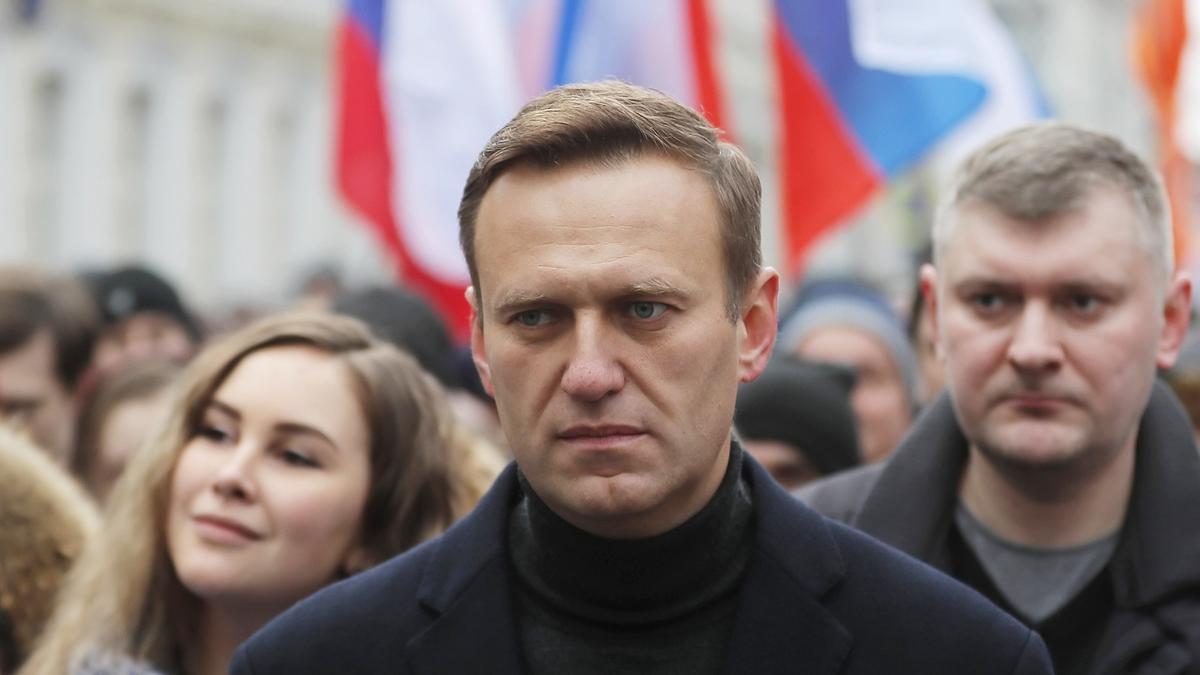The murder of Alexey Navalny in a remote penal colony in the Russian Arctic on Friday marks a point of no return for Vladimir Putin’s regime. It is now clear that his dictatorship will continue exterminating people until it is forced to desist.
After nearly two years of war and genocide in Ukraine, many still subscribe to the Realpolitik approach that Putin will have to be reasoned with sooner or later. Some are even willing to believe that the obscure historical resentments that Putin now habitually spouts in interviews were the true reason for his decision to invade Ukraine. However, this Realpolitik will have to be adjusted following the murder of his main political opponent.
The war and killings will continue for as long as Putin remains in power, even if some kind of peace deal can be reached. No historical or rational pretext for his violence is required — he simply enjoys the process.
Ukrainians have already been aware of this for some time. But the further West voters are from the front line, the less obvious it is to them that, for two years, the most efficient argument in reasoning with Putin has been artillery shells. Shells that Europe never began producing in the right quantities because Putin was the only one gearing up for a long war. Navalny’s murder means that the criminals in the Kremlin have free rein to do whatever they want with anyone, be it Russians, Ukrainians, or anyone else.
By ordering or facilitating Navalny’s murder, Putin has shown that his power is anchored solely in the unbridled terror he can unleash upon those who desire a peaceful future for Russia and its neighbours.
This is another sign that we have passed the point of no return. Those Russians who have so far pretended that the war is none of their business have now been offered a clear-cut image of their future. Putin will now demand total allegiance to his war and destroy those who voice any doubts. This is the political intention of Navalny’s murder: to demonstrate that there is no alternative to the current path and that daring even to consider another one could lead to physical annihilation.
It would be incorrect to say that Alexey Navalny simply died — there is no doubt that he was murdered. Should the authorities allow an independent autopsy — and if those conducting it are brave enough to risk their own ruin by sharing their findings honestly — a violent death will be confirmed. But even if it remains unconfirmed, we still have a verified sequence of events.
Navalny was poisoned in 2020 as Putin was preparing for war with Ukraine. Thanks to the combined efforts of his various doctors and supporters, Navalny survived. He returned to Russia before he had fully recovered from the attempt on his life and was immediately arrested on 14 criminal charges. He was sent into the torturous conditions of a punishment cell 27 times during his three years in jail, where he was forced to stand up for days on end, before finally being transferred to a remote prison in the Arctic. This sequence of events can be summed up in a single word: murder.
Footage of Putin looking uncharacteristically upbeat while attending the Future Technologies Forum on Friday after the announcement of Navalny’s death in prison is telling indeed.
Navalny was one of the few Russian politicians of recent times who built his career openly opposing Putin’s dictatorship and who remained in Russia while doing so. His unprecedented courage has become a beacon for those who refuse to accept that they are Putin’s property.
Around the world, people are taking to the streets to mourn Navalny’s death and demand that his murderers be brought to justice. In Russian cities, people are laying flowers at memorials to the victims of political repression while recognising the fact that a new Great Purge is lurking just around the corner.
Our grief runs deep.
Join us in rebuilding Novaya Gazeta Europe
The Russian government has banned independent media. We were forced to leave our country in order to keep doing our job, telling our readers about what is going on Russia, Ukraine and Europe.
We will continue fighting against warfare and dictatorship. We believe that freedom of speech is the most efficient antidote against tyranny. Support us financially to help us fight for peace and freedom.
By clicking the Support button, you agree to the processing of your personal data.
To cancel a regular donation, please write to [email protected]

